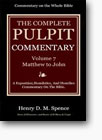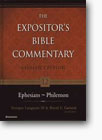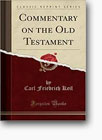>Hell Under Fire
Warren Prestidge - FDTL Iss 46
CIANZ Annual Conference Address
Article from https://www.afterlife.co.nz/
Part 3
A more serious weakness in the approach of contributors to Hell Under Fire is that they approach the Bible with this question is view: What does the Bible – the Old Testament, Jesus, Paul, the Book of Revelation – say about hell? Now, that whole approach is very restrictive. It simply excludes a heap of biblical evidence. What they should be asking is: What does the Bible – the Old Testament and the New – say about the final fate of the lost? Because that is the real issue and because, in fact, the idea of "hell" is only one of many ways in which the Bible talks about this subject. But if you direct attention only to passages which relate recognisably to the idea of "hell", and particularly to the very small set of such texts which appear, at first glance, to support eternal suffering, you acquire, and create, the impression that this is the normative biblical approach.
As I say, the fundamental question is surely not, "What does the Bible teach about hell?" but "What does the Bible teach about the final fate of the lost?" Once we put that question, we are very likely to recall immediately that what the Bible normally says is, that they will die: "The wages of sin is death…" (Rom 6:23). Or that they will be destroyed, or perish: "God so love the world that he gave his one and only Son so that whosoever believes in him should not perish…" (John 3:16). Not that these Traditionalists are unaware of such texts, but they fail to draw attention to how common texts like these are in Scripture, and utterly fail to recognise their significance as the normative Scripture-based context within which the texts about hell ought to be interpreted.
Now, it is true that these words "death" and "destruction" do receive some attention in Hell Under Fire. Unfortunately, however, contributors seek to avoid the plain sense of these words by a standard Traditionalist strategy: they claim that, when referring to the fate of the lost, these words do not mean what they appear to mean: that, rather than denoting an end to conscious, functioning existence, they merely denote a change to a new, less desirable state of conscious, functioning existence. This simply will not do.
The fact is, the Bible itself regularly makes clear what it means by death. I've already referred to Genesis 3:19: "You are dust and to dust you shall return." Death is set forth in Scripture, not as another form of life, but as the opposite to life. "Look," says Moses in Deuteronomy, "I set before you life – and death. Choose life" (30:19). The penalty for sin which Jesus Christ bore for us all on the cross was death, not eternal suffering. In Hell Under Fire, attempts are made to counter this point by arguing that, as Christ was the infinite Son of God, the penalty He bore was correspondingly infinite and therefore equivalent to eternal torment. 1 Well, this is mere speculation, not Bible teaching. In fact, in Hell Under Fire itself Prof. Ferguson gives a very fine biblical account of what Jesus endured at the cross (pp229-231), but finds not a single text to support this idea! What the Bible does teach is that the penalty for sin is paid by sacrifice, as indeed the whole Old Testament teaches. Now sacrifice is not an eternity of suffering: it is life given up and life taken: it is death. And what the Bible teaches everywhere is that we saved by Christ's "blood", that is, by His sacrificial death (Rom 3:25, 5:9; Eph 1:7; Heb 9:14, 10:19; Rev 1:5). Indeed, it is Traditionalists, not Conditionalists, who jeopardise the biblical doctrine of the atonement, and much else besides.
What about "destruction"? This term, and the related term "perish", occur regularly in our English Bibles, to translate actually quite a few different Hebrew and Greek words for the final fate of the lost. And it is so obvious that "destruction" amounts to annihilation, that James Packer, in Hell Under Fire, even defines Annihilationism as "the belief that those who die apart from saving faith…will be destroyed" (p196)! Well, that's what the Bible says!
Do "destruction" and "perish" really what they say? Of course they do. This is not a matter of naive literalism on my part. The Bible itself frequently makes the import of its use of terms like "perish" and "destruction" absolutely clear in context. Sometimes this is done by means of imagery. Job 20:7: "The wicked will perish for ever like his own dung" – not pretty, but you know what is meant, and it's not everlasting conscious existence! Psalm 37:20: "…the wicked perish…they vanish – like smoke they vanish away"! Sometimes the meaning is clarified in other ways. Jesus once said: "Unless you repent, you will all likewise perish" (Luke 13:5). Like what? He's referring to people upon whom a tower fell and to others who were killed by the Romans. What happened to them? They died! What does it mean, to "perish"? It means what it says! It means, to come to an end.
Sometimes the context states everything very straight forwardly. Psalm 104:35: "May sinners be destroyed from the earth: may the wicked be no more". Sorry, Traditionalists: that's "annihilation"! Isaiah 41:11: "Those who strive against God shall be as nothing and shall perish." Psalm 37, which says so often that the wicked will be destroyed, also says (v10): "the wicked will be no more".
Jesus says: "Fear God who can destroy both soul and body in hell" (Matt. 10:28). Is that really ambiguous? If the same word, "destroy", is applied in the same sentence, without qualification, to both "soul" and "body", will it not mean the same thing in both cases? The Greek philosopher Plato, who believed in the immortality of the soul, said that the soul cannot be destroyed (Phaedo 14, 24, 36). Jesus says: Yes it can. And that is what hell is for: the destruction – the bringing to an end – of the whole person: as John Stott said, "an extinction of being".2
What people associate most of all with hell, of course, is fire. Well, the fact is that in the Bible fire is regularly and unambiguously and emphatically associated with – annihilation. Malachi 4 tells us that God's judgment day will burn like an oven, with the result that evildoers will be completely burnt up, like chaff or straw (v1). Similarly, in Matthew's Gospel, John the Baptist says the chaff will be burned up with fire. How is this ambiguous? Oh yes, John says the fire will be "unquenchable". But this expression is completely intelligible against the background of Old Testament usage: for example, Jeremiah 17:27, where God says He will "kindle a fire" that shall "devour the palaces of Jerusalem and shall not be quenched". Are the palaces of Jerusalem still burning? No, "unquenchable" means, in fact, the opposite of an ongoing fire: it means that the fire will not be prevented from completing its work of total destruction!
But, having read Hell Under Fire, I find that Traditionalists are generally unwilling to take the Old Testament background or witness into account much at all. And often when they do, the result is misleading and misinformed. For example, Robert W. Yarborough, who contributes the essay "Jesus on Hell", claims that the last verse of the Book of Isaiah clearly teaches the notion of eternal punishment (pp74, 82). Yarborough is referring especially to the famous phrase: "their worm shall not die and their fire shall not be quenched". There you are, says Yarborough: eternal suffering.3 And yet even in this same volume, Hell Under Fire, in the essay entitled "The Old Testament on Hell", the Old Testament spokesman Daniel I. Block says no! Rather, as Block rightly points out, the image here is "that of a pile of corpses…ignominiously dumped in a heap and torched" (p61). And yet this text, of course, is clearly what is in the mind of Jesus, when he says of those cast into hell, that "their worm does not die and the fire is not quenched" (Mark 9:48). What worms feed on is the dead, not the living!
Well, with the best will in the world, the Old Testament contributor cannot find any teaching in the whole Old Testament to support Traditionalism. And with the very best will in the world, this whole collection of militant Traditionalists can find hardly any support in the New Testament either. And the truly astonishing thing, they admit this! To their credit, they're too honest to deny it! The Old Testament man finds hardly any "hints", even (p59), in that whole corpus! Douglas J. Moo, who contributes the essay called "Paul on Hell", concedes: "…rarely, if ever, does Paul devote himself to explicit teaching about hell as a central purpose within his letters" (p95). Indeed, Moo hangs his whole case on II Thessalonians 1:8-9, which speaks, not of "eternal suffering" at all, but of "eternal destruction"! In fact Moo himself concedes that "the decisive data" against Annihilationism "do not occur in Paul" (pp102f) and "one looks in vain for any clear Pauline affirmations" of eternal suffering (p109).
Where, then? It is repeatedly said by Traditionalists that Jesus is the one who most clearly and consistently spoke of a hell of eternal suffering.4 And yet, in his essay entitled "Jesus on Hell", Prof. Yarborough himself can point to only two texts as unambiguous evidence: Matt 18:8-9 and Mark 9:47-48 – and we have just shown that the Mark 9 text teaches no such thing. Nor does Matthew 18:8-9. It speaks of "eternal fire"; but then so does Jude 7 and Jude 7 is speaking about the judgment that overtook Sodom and Gomorrah, not about everlasting suffering. An "eternal fire" is everlasting in its effects, not necessarily in its duration.
So then where, if anywhere at all, does Scripture clearly and unambiguously teach that lost human beings will suffer forever in hell? Surely, given that it is absolutely vital, and only fair, that we should be confronted unmistakably with this truly awesome reality, if it is true – we should find it clearly and unambiguously spelt out in God's Word? But the answer is, nowhere.
The very best that Traditionalists can do, is point us to two texts in the Book of Revelation: Rev 14:9-12 and Rev 20:10. It is Gregory K. Beale who contributes the essay "The Revelation on Hell". Well, on Rev 14:9-12, even Prof. Beale concedes that the Old Testament background to this passage "could support" annihilationism and that both the grammar and the imagery in this passage "could indicate a great judgment that will be remembered forever, not one in which people will suffer forever" (pp114-116).
I'm still waiting for unambiguous testimony. Rev 18:21 sounds pretty unambiguous and that says that Babylon "shall be found no more". Hang on: that's annihilation! Rev 20:14 and 21:8 describe hell as "the second death". That sounds clear enough. So what about Rev 20:10? Rev 20:10 does speak of being tormented "for ever and ever". It is the only text in the entire Bible that does so and it refers, not to people, but to Satan, the Beast and the False Prophet. Two of those entities are symbolic and one is – well – Satan. How relevant is this text? It does not refer to people. And it's the only text in the entire Bible that speaks of being tormented forever and ever. Over the centuries, orthodox Christian theologians have been warning us until blue in the face
not to build doctrine of any kind upon a mere handful texts.5
Are we now, in the face of the consistent witness of Scripture, going to build a doctrine as astounding, controversial and frankly scandalous as eternal torment upon one text, one text of questionable significance and relevance, drawn from the most controversial book in the entire Bible?
No. The wages of sin is death. That's what the whole Bible says and – as you'd expect – it makes sense, as well! Sin doesn't make sense, but God's judgment does. However, the gift of God is eternal life in Jesus Christ our Lord (Rom 6:23). That doesn't make sense either! That's a sheer gift. And I hope to spend all eternity thanking God for it.
Add Comment
Footnotes
1. "E.g. Christopher W. Morgan, quoting David Wells, pp212-213, Sinclair B. Ferguson, p232
2. D. L. Edwards and J. R. W. Stott, Essentials, London: Hodder and Stoughton, 1988, p.315.
3. See also Douglas J. Moo, "Paul on Hell", p95.
4. e.g. D. A. Carson, quoted with approval by Christopher W. Morgan, pp214-215; also Sinclair B. Ferguson, p239.
5. "Incidentally, Robert A. Peterson concedes that the only text that could support "the conscious suffering of the wicked in the intermediate state" is Luke 16:19-31 And that's a parable!











Comments